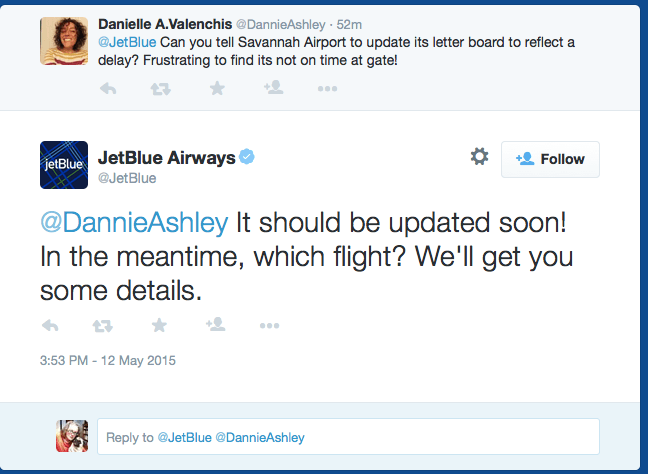If your job involves any kind of online communication, the reputation of your company is in your hands. That means anyone who does anything in the SEO field absolutely, positively, must know how to protect the company’s reputation.
But here’s the thing: Many SEO experts have no idea how to protect against an attack. They may know how to respond to an attack (or who to hire to help them respond to an attack), but they may not really know what to do to keep that attack from happening in the first place.
That’s a big knowledge gap, and it could have dire consequences. Just think: Pew Research suggests about 44 percent of online adults have used the internet to dig up data on people they plan to connect with professionally. If you don’t have a great plan in place, when that search happens and an attack comes, the knowledge gap could cost you your job.
Thankfully, you can close that gap relatively quickly, and you can learn how to make sure your company isn’t vulnerable to attacks via social media. Here are the 5 things your boss needs you to know in order to make that happen.
1. A Few Negative Reviews Won’t Hurt You
There are all sorts of review sites out there, but when most people talk about online reviews, they’re talking about Yelp. A Nielsen report from 2014 backs me up on this, as the majority of people interviewed there said they valued Yelp opinions more than opinions given on any other site out there. That means, in my mind, that Yelp is king.
Relentlessly focusing on Yelp can, however, lead you to make a few rookie mistakes. Specifically, you might go into full freak out mode when you spot even one negative review. When that happens, you might become convinced that you’ll need to delete that review at all costs.
I have one word for you: Relax.
One or two negative reviews are not going to kill your business. Those few bad reviews could actually be useful.
The Yelp algorithm is based on the idea that every company will have a pretty standard profile in which most reviews are positive, and one or two are very negative. The idea here is that most people write reviews of the companies they like, and a few break away to write reviews of the companies they hate. If you have one or two negative reviews, you fit into this pattern perfectly. Yay!
And a common review pattern could, says LocalVox, keep you from dealing with the Yelp review filter. This is the nasty bit of computer programming that attempts to determine which reviews are real and which are fraudulent. The LocalVox writers suggest that companies with a normal review profile that has a few negative hits gets filtered less than a profile with only good stuff. The pattern of reviews looks normal, so the program doesn’t intervene.
If you’re dealing with dozens of reviews, there’s a real problem that should be addressed. We all know that. But if one or two reviews appear that aren’t quite topping the happiness scale, address them politely and move on to other projects. These few comments just won’t hurt you.
2. A Heartfelt Apology is Priceless
Maybe I’ve overstated the benefits here, as a study in Psychological Science says we tend to value the apologies we think we’re about to get much more than the apologies we actually get. So maybe an apology in real time isn’t as beneficial as an implied apology yet to come.
But in any case.
When your company screws something up, consumers typically want a heart-felt apology. They want someone out there to take responsibility for the gaffe and ensure that it never happens again.
Complaints you spot on social media should almost always be addressed with an apology (and I’ve written on SEJ all about how to craft great apologies right here). Use the right words, and you might placate the angry. They’ll have no reason to attack your company at that point.
3. Speed Matters
If you’re handling your company’s social media accounts, you’re expected to respond to upset consumers with lightening speed. Close to half of consumers that reach out to companies via social media expect a response within about an hour, experts say. And many of those consumers expect that same speedy response times on weekends and in the evening hours.
If you can, work on handling consumer issues just as soon as you see them. Provide a personalized email address consumers can use to contact you directly, so you’ll keep your talk out of the public’s eye. And work hard to solve that problem and convert that consumer into a happy supporter.
Need inspiration? Check out JetBlue on Twitter. Notice how quickly each tweet gets a reply, and notice how most replies come with a solution or suggestion. Here’s just one example of customer service social excellence.

Do something like this, and you’re sure to have more fans than enemies.
4. Good Service + Good Products = Fewer Attacks
It sounds so simple, but it’s very true: If you’re careful with the products you make and the service you deliver, your customers will have less to complain about, and you’ll have fewer reputation problems to solve.
Here’s a bit of (informal) proof: In a Yelp poll, many power reviewers said they provided negative reviews simply because they had a negative experience with a company. They weren’t out to settle a score or drag an innocent party through the mud. They felt they had valid complaints that were being somehow ignored, and they took matters into their own hands.
As the company SEO, you may not have a lot of control over product development or front-line sales, so these problems might not be super easy for you to fix without help. But, you can collect common consumer complaints and bring them to your manager’s attention. Better yet, work on holding consumer summits in which you outline all of the problems you’ve seen and the team comes up with solutions.
It’s always easier to simply ignore customer concerns, but with this approach, you’ll use those concerns to actually make your business better. That’s good for everyone, right?
5. Content Generation is Your Friend
If you’re already seeing some negative chatter about your business or your brand online, you’ll need to create great content that can compete with that negativity or surpass it altogether. That advice comes straight from Google, and it’s worth paying attention to.
If your department is considering a content-generation scale back, fight to keep your time in the writer’s seat. The content you’re creating can help to push away the bad stuff and make your company’s performance online nothing short of stellar.
Putting the Plan to Good Use
Managing a company’s online reputation can be a full-time job, particularly if your client base is made up of chatty, dedicated consumers who like to share. But if you can put these plans into action, and most importantly, measure your results, you’ll prove to your boss that you’ve got this reputation thing handled. And who knows? You just might get a few worker helpers with the next round of hiring.
Have any of you tried these tips yet? I’d love to hear your feedback in the comments.
Image Credits
Featured Image: StartupStockPhotos via Pixabay
Screenshot take May 2015





